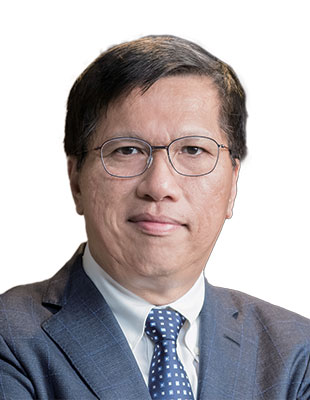Super AI - a cause for celebration or concern?
Optimists such as Professor Fei-fei Li at Stanford University say: "I imagine a world in which AI is going to make us work more
productively, live longer, and have cleaner energy." Pessimists such as Geoffrey Hinton, one of the so-called "Godfathers of AI,"
who left Google to sound warning shots on AI's risks, want a world treaty to ban the use of military robots. Elon Musk, currently
the richest person in the world, says AI will create a world "where no job is needed." Whatever you make of it, the release of
GPT4 in November 2022 has probably entered your consciousness – if not your working life. Where does that leave us in the
university?
Professor Minkyu Shin takes the optimists' view and looks at How superhuman artificial intelligence influences decision-making by
increasing novelty. He analyses the potential for superhuman AI in the context of the ancient game of Go and finds that it can
prompt us to break away from traditional strategies and act as a catalyst for human innovation.
According to Professor Gladys Lam in What skills will students need in the AI era? AI is indeed going to change the way we work,
and she sheds light on how to prepare students for success in this new era.
Dr Daniel Tse Woon-kwan poses the question Is Artificial Intelligence a threat or an asset to Education? He looks at the core
technology of ChatGPT, the nature of the new knowledge-based systems, and the drawbacks and potential benefits of the new
apps, and the implications for governance – both in education and wider society.
In The art of Right Place, Right Time, an interview with Jim Thompson, Chairman of Crown Worldwide Group, we learn how
digitalisation is affecting more traditional relocation industries, and robotics are creating more efficient warehousing. We also look
at whether entrepreneurship is a good option for graduating students in present day Hong Kong.
Finally, doctoral student, Min Zhou, looks at Challenges and opportunities in anti-fraud operations for banks. Whilst AI has allowed
fraudsters to greatly increase their success rate, new opportunities arise in detecting anomalies, analysing transaction risk, and
automating the handling of customer queries.
We probably haven't heard the last on the governance of AI. Indeed, this is an international issue and was very much the elephant
in the room at the UK's early November Bletchley Park AI summit. This was the first time that China has met with western
governments to discuss the issue. Governance will undoubtedly cover the hard area of regulation and in August 2023, China
took the lead with an internationally ground-breaking law designed to regulate generative AI. The US Vice President now
proposes to set up an institute that would police artificial intelligence. But governance also involves the softer issue of
"alignment." As Co-Director of the Stanford Institute of Human-Centered AI, Fei-fei Li says "I don't know where we collectively
are going to come out, but I think it's so important to focus our energy on human-centered AI."
I hope you enjoy this issue of City Business Magazine and, as the AI story unfolds,
we welcome your future contributions to the discussion.
Professor Kalok Chan
Dean
College of Business

